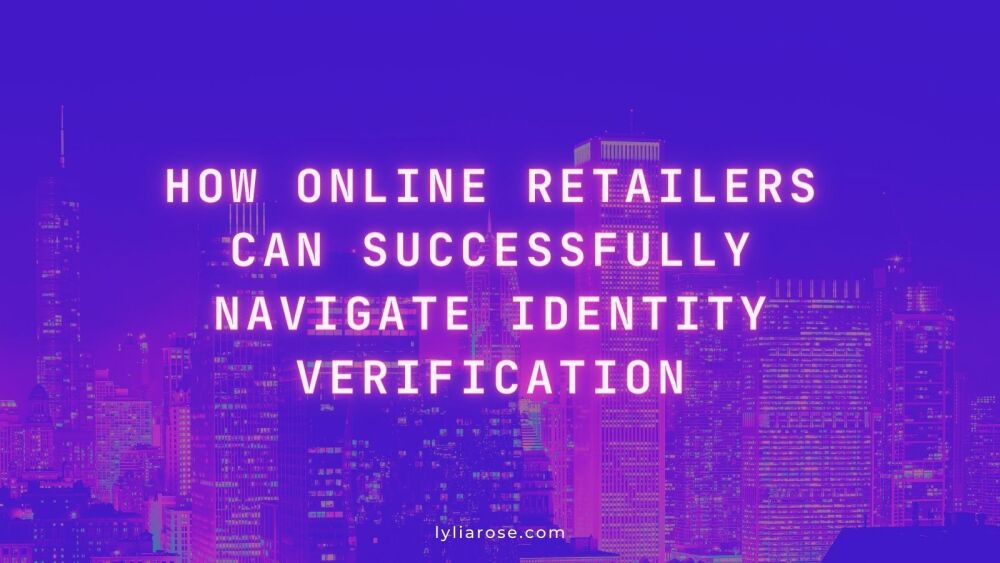How Online Retailers Can Successfully Navigate Identity Verification
Posted on
In the bustling digital marketplace, e-commerce platforms are not just about convenience and variety; they are also about trust and security. Over the past decade, the landscape of online shopping has evolved dramatically. The rise of identity verification services has become a cornerstone in building a secure e-commerce environment. Let's delve into how these services are reshaping the online shopping experience.

The Imperative of Identity Verification
In the e-commerce realm, the initial anonymity of customers poses a unique challenge. Unlike physical stores where a face-to-face interaction instills a level of trust, online platforms must rely on digital trust. This is where identity verification services come into play, serving as the digital handshake between consumers and businesses.
The Mechanics of Identity Verification Services
Identity verification services are sophisticated systems that validate the personal credentials of users. They employ a combination of data analysis, document verification, biometric checks, and sometimes even artificial intelligence to ensure that an individual is who they claim to be.
Data Analysis
At the heart of identity verification is data analysis. Verification services cross-reference personal information provided by users with public and private databases. This step is crucial in flagging any discrepancies that might indicate fraudulent activity.
Document Verification
Advancements in technology have made document verification a seamless process. Users can now upload images of their identification documents, which are then scrutinised for authenticity. Features such as holograms, barcodes, and watermarks are checked against known standards.
Biometric Checks
Biometrics add an extra layer of security. By using unique physical characteristics such as fingerprints or facial recognition, identity verification services ensure that the person behind a transaction is present and legitimate.
The Role of Identity Verification in E-commerce
The integration of identity verification services in e-commerce is multifaceted. Not only do they protect consumers from identity theft, but they also safeguard businesses from fraudulent transactions.
Enhancing Consumer Trust
When customers feel secure, they are more likely to engage with an e-commerce platform. Identity verification services provide that sense of security, assuring customers that their identities are protected and that they are engaging in a safe transaction.
Reducing Fraudulent Transactions
For businesses, the cost of fraud can be staggering. Identity verification services act as a gatekeeper, deterring scammers and reducing the incidence of fraudulent transactions. This protection is invaluable in maintaining the financial integrity of e-commerce operations.
Regulatory Compliance
E-commerce businesses are often subject to stringent regulatory requirements, especially concerning customer data and privacy. Identity verification services help in maintaining compliance with laws such as Know Your Customer (KYC) and Anti-Money Laundering (AML) regulations.
The Evolution of Identity Verification Services
The field of identity verification is constantly evolving. The latest developments include the use of blockchain technology for enhanced security and the integration of machine learning algorithms to improve accuracy.
Blockchain Technology
Blockchain offers a decentralised and tamper-proof ledger, which is ideal for storing sensitive verification data. By leveraging blockchain, identity verification services can provide a more secure and transparent mechanism for authenticating identities.
Machine Learning
Machine learning algorithms can analyse vast amounts of data to detect patterns indicative of fraudulent activity. This capability allows identity verification services to adapt and respond to new threats as they emerge.
Best Practices for Implementing Identity Verification Services
For e-commerce businesses looking to implement identity verification services, there are several best practices to consider:
User Experience
The verification process should be as frictionless as possible. A cumbersome process can deter legitimate customers. Striking the right balance between security and user experience is key.
Data Privacy
Businesses must ensure that the data collected through verification services is handled with the utmost care. Adhering to data protection regulations and best practices is not just a legal obligation but also a trust-building measure with customers.
Continuous Monitoring
The digital threat landscape is ever-changing. Continuous monitoring and updating of verification processes are essential to stay ahead of potential security threats.
Conclusion
Identity verification services are not just a security measure; they are a vital component of the customer experience in e-commerce. They instil confidence, deter fraud, and ensure compliance, all of which are critical in the digital age. As e-commerce continues to grow, the role of identity verification services will only become more integral to the success of online businesses.
Incorporating these services is not just about adopting a technology; it's about committing to a secure, trustworthy, and customer-centric approach to e-commerce. As we navigate the complexities of the digital marketplace, identity verification services stand as the guardians of trust and confidence, ensuring that every transaction is as secure as a handshake in the physical world.
